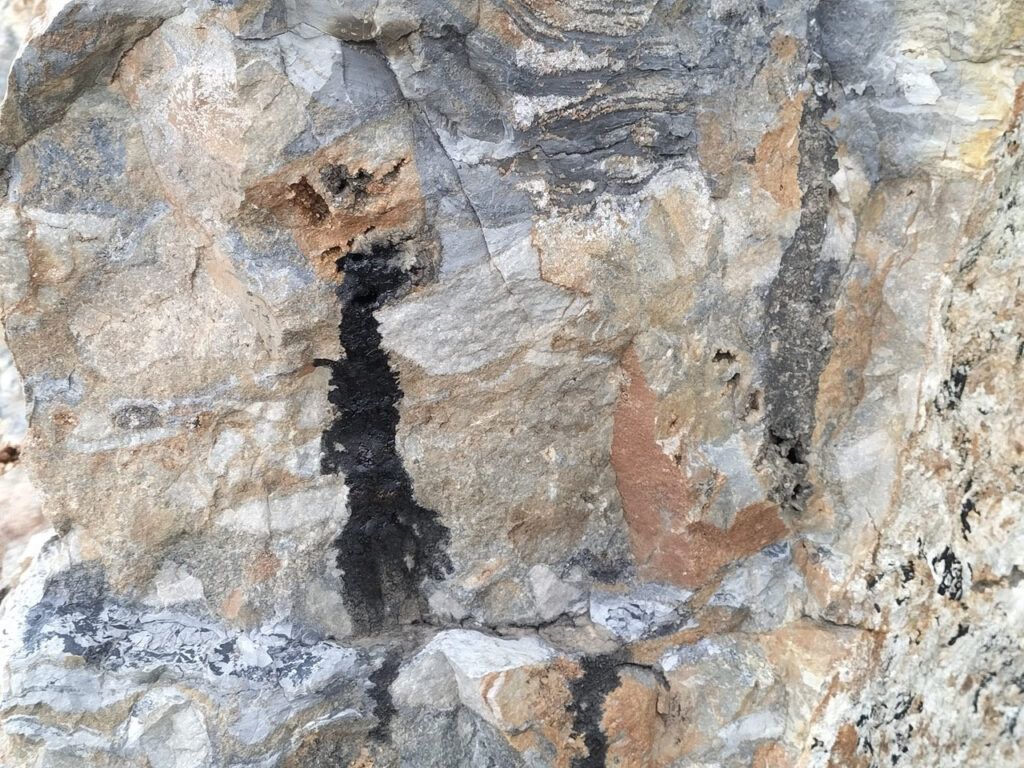[LUM#19] Towards the end of oil
While hydrocarbons have been the panacea in terms of energy for decades, the oil monopoly is now ecologically unsustainable. But will the end of this idyll be chosen by humans or imposed by the depletion of black gold resources? Chronicle of a foretold end with specialist Michel Séranne, from the Montpellier GeosciencesLaboratory *.

Take some living marine microorganisms, animals, plants, bacteria, plankton. When they die, let them sink to the bottom of lakes or oceans where they will mix with sand, forming different layers of sediment. Deprive them of oxygen and adjust the temperature and pressure. Wait tens of millions of years. You have oil. An ancient and unchanging recipe for a timeless product.
"Oil began to be used as an energy source in the 19th century, but its consumption exploded in the early 20th century with the invention of the automobile," recalls Michel Séranne. It must be said that as an energy source, oil had everything going for it at the time. "It is a fluid, so all you have to do is insert a pipe to extract it from the ground, which makes it very easy to exploit compared to coal, for example," explains the geologist.
Oil addict
Easy to extract, transport, store, and use, oil is a very cheap energy source that has all the advantages. "So easy that it has been used recklessly, creating a real addiction to fossil fuels." In 2018, we exceeded the threshold of 100 million barrels of oil consumed per day worldwide. That's nearly 16 billion liters of black gold every day.
"We consume oil much faster than it is created. It takes tens of millions of years to form and burns in just a few seconds," Michel Séranne points out. This means that, on our timescale, it is a non-renewable energy source and therefore a finite resource. This observation raises a recurring question: will we eventually use up all the available oil?
Although the end of oil has been regularly predicted since the 1980s, this deadline keeps getting pushed back as we get closer to it. Because there is still oil. "Not only are we gaining a better understanding of natural reserves and discovering new reservoirs, but there have also been major technological advances that allow us to exploit previously inaccessible resources. Today, we are exploiting barely 1/4 to 1/3 of the oil contained in the deposits."
Untapped resources
After first emptying the most accessible reserves, we could now exploit deposits that are further away or more difficult to access. Not to mention all the known black gold resources that have not been exploited for geopolitical reasons, "such as in Venezuela, the Arctic, or Alaska. The resources would last for more than a century, " says the geologist.
"In reality, the question is not whether there will still be oil, but rather how much we will be willing to pay for it. " Because less accessible deposits mean higher operating costs. Not to mention, of course, the ecological price, which "will be totally exorbitant, an unacceptable cost," Michel Séranne points out. A real paradigm shift around the end of oil that will not be imposed and must therefore be chosen.
And while the need for this energy transition is now widely accepted, Michel Séranne does not believe it spells the end for oil: " At present, renewable energies account for less than 20% of the energy produced, and if we want to increase this proportion, we need oil and gas, if only as an energy source during this transition period. What we need to do is reduce the proportion of hydrocarbons as quickly as possible."
Essential geosciences
An energy transition that cannot happen without oil or geologists. This is particularly true because the materials needed to produce renewable energy are also hidden beneath our feet, and extracting them requires a keen understanding of geological formations. "Strategic metals such as cobalt, nickel, and rare earths, of course, but also base metals such as steel, aluminum, and copper, which are essential for the construction of wind turbines and solar panels."
But also because the subsurface represents a highly strategic location for energy storage. "Most renewable energies are intermittent, so we need to be able to store them when they are produced in order to use them when we need them, and natural reservoirs can provide a solution to this problem, " explains Michel Séranne. Knowledge and use of the local subsurface are therefore a major challenge for the energy transition, which cannot happen without geosciences. "Developing research and teaching to make better use of it is becoming increasingly necessary to accompany the announced end of fossil fuels, " points out Michel Séranne.
See also
- The article "Precious Nuggets,"in which geologists detail the importance of better understanding the formation processes of rare metals used in so-called "green" technologies.
*GM (UM, CNRS, University of the Antilles)
Find UM podcasts now available on your favorite platform (Spotify, Deezer, Apple Podcasts, Amazon Music, etc.).